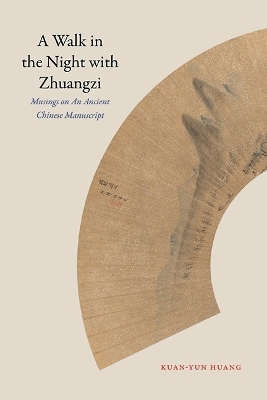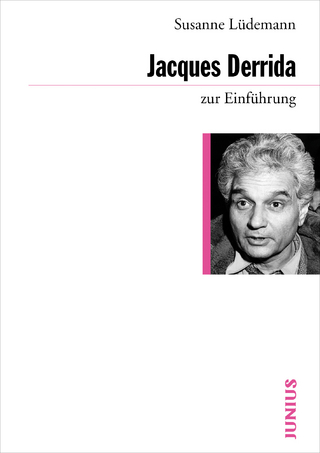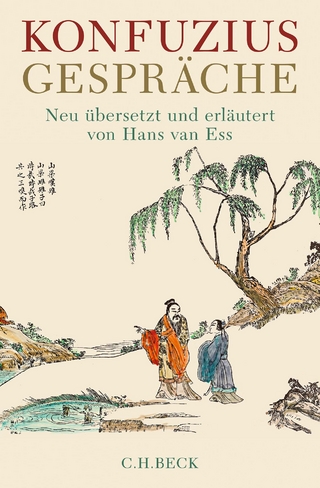
A Walk in the Night with Zhuangzi
Musings on an Ancient Chinese Manuscript
Seiten
2023
State University of New York Press (Verlag)
978-1-4384-9177-6 (ISBN)
State University of New York Press (Verlag)
978-1-4384-9177-6 (ISBN)
A complete translation and analysis of "All Things Flow into Form" (Fan wu liu xing), a recently discovered manuscript from the Warring States period (481–221 BCE).
At the heart of "All Things Flow into Form" (Fan wu liu xing), an ancient Chinese manuscript recently salvaged from the black market, is a concern with the process of self-cultivation, particularly the advancement through the incremental stages and the outcome that awaits one in the end: enlightenment, transparency, and self-possession. Critical to this discussion is a conception of a mind within a mind, the unity of which is obtained through the isolation of an innermost core free from extraneous distractions. Such a state is presented as an ideal for kingship, and the text, despite its possibly very ancient roots, is focused on the ruler's ethical training rather than his political maneuvers, his obligation to Heaven and the spirits rather than his dominance over his subjects. Probing deep into this text, we may observe heretofore unappreciated aspects of many of the transmitted literary sources, and in turn, come to more definite conclusions about the manuscript itself. To the extent that this analysis is successful, it illustrates an approach that can be tested against future efforts to read ancient Chinese texts in the light of newly unearthed documents.
At the heart of "All Things Flow into Form" (Fan wu liu xing), an ancient Chinese manuscript recently salvaged from the black market, is a concern with the process of self-cultivation, particularly the advancement through the incremental stages and the outcome that awaits one in the end: enlightenment, transparency, and self-possession. Critical to this discussion is a conception of a mind within a mind, the unity of which is obtained through the isolation of an innermost core free from extraneous distractions. Such a state is presented as an ideal for kingship, and the text, despite its possibly very ancient roots, is focused on the ruler's ethical training rather than his political maneuvers, his obligation to Heaven and the spirits rather than his dominance over his subjects. Probing deep into this text, we may observe heretofore unappreciated aspects of many of the transmitted literary sources, and in turn, come to more definite conclusions about the manuscript itself. To the extent that this analysis is successful, it illustrates an approach that can be tested against future efforts to read ancient Chinese texts in the light of newly unearthed documents.
Kuan-yun Huanglives and teaches in Taiwan, where he is Research Fellow and Director of the Research Center in Taiwan, Oriental Institute, Czech Academy of Sciences.
Preface
A Note on the Translation
Part I. “All Things Flow into Form”
“All Things Flow into Form”: English Translation
“All Things Flow into Form”: Chinese Transcription
Part II. Analysis
1. Solitude
2. Sincerity
3. “The Heart of Hearts”
4. Walking in the Night
5. One
Concluding Remarks
Acknowledgments
Notes
Index
| Erscheinungsdatum | 06.03.2023 |
|---|---|
| Reihe/Serie | SUNY series in Chinese Philosophy and Culture |
| Zusatzinfo | Total Illustrations: 0 |
| Verlagsort | Albany, NY |
| Sprache | englisch |
| Maße | 152 x 229 mm |
| Gewicht | 227 g |
| Themenwelt | Geisteswissenschaften ► Philosophie ► Östliche Philosophie |
| Geisteswissenschaften ► Religion / Theologie ► Weitere Religionen | |
| Geisteswissenschaften ► Sprach- / Literaturwissenschaft ► Anglistik / Amerikanistik | |
| Geisteswissenschaften ► Sprach- / Literaturwissenschaft ► Literaturwissenschaft | |
| ISBN-10 | 1-4384-9177-8 / 1438491778 |
| ISBN-13 | 978-1-4384-9177-6 / 9781438491776 |
| Zustand | Neuware |
| Haben Sie eine Frage zum Produkt? |
Mehr entdecken
aus dem Bereich
aus dem Bereich


